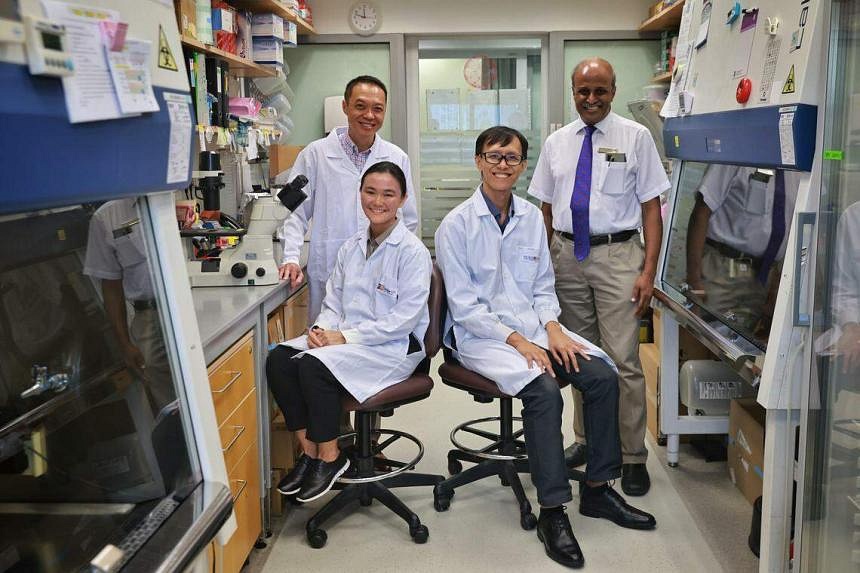SINGAPORE - Researchers here may have pinpointed why a small group of people face a higher risk of cardiac complications after getting a shot of the Covid-19 vaccine.
A study by researchers from Duke-NUS Medical School and others suggests that those with high baseline levels of RNASE2, an enzyme produced in the body that processes ribonucleic acid (RNA), may be more prone to heart issues following a jab of an mRNA vaccine.
The findings, published in clinical journal Med in April, are based on the case of a man who had developed symptoms similar to those of myocarditis – the inflammation of the heart muscle – after receiving a booster shot of Moderna’s Covid-19 vaccine in October 2021.
The patient, described as a “fit and healthy” 42-year-old with no underlying illness or history of allergies, experienced muscle pain and tenderness at the injection site.
He had taken the mRNA-based Pfizer-BioNTech vaccine for his first two shots.
Though he was well on the first day when he got his Moderna booster, he subsequently experienced worsening shortness of breath, and by the fourth day, was unable to move about without intermittent rest.
On the fifth day, he began experiencing chest pain caused by exertion. He was admitted to hospital the following day, and the man’s electrocardiogram showed signs similar to those of patients with myocarditis and pericarditis, which is the inflammation of the lining around the heart.
He was discharged on the eighth day without further intervention and was able to resume normal daily activities a week later.
The patient was a participant in a study of 200 people on the side effects of Covid-19 vaccines. It was funded by the National Medical Research Council.
His participation allowed researchers to compare blood samples before and after vaccination, and contrast the samples against specimens from 18 other people in the cohort to identify differences that could explain the cardiac complication observed.
While the findings suggest the cardiac complication resulted due to a number of reasons, the main factor may have been the administering of mRNA vaccines to someone with a high level of RNASE2, researchers said.
The paper suggested that modifications to future vaccines could help prevent the overstimulation of RNA sensors, making such vaccines safer.
Other studies have already suggested a link between an overactive immune system and cardiac complications, said the lead investigator, Professor Ooi Eng Eong, deputy director of the emerging infectious diseases programme at Duke-NUS Medical School.
The paper admitted that a key limitation of the study was that its findings were based on a single case.
However, Prof Ooi told The Straits Times that it would be unrealistic and uneconomical to recruit the hundreds of thousands of people needed for a clinical trial, given how rare occurrences of post-vaccination cardiac complications are.
“You would literally have to recruit Singapore’s entire population of more than five million people just to get those rare specimens,” he said.
Speaking in Parliament on May 9, Health Minister Ong Ye Kung said incidents of myocarditis after taking Covid-19 vaccines have been very rare, with 160 reports of myocarditis and pericarditis linked to the vaccines to date, out of more than 17 million doses administered. Two deaths from myocarditis – a 43-year-old woman and a 28-year-old man – have so far been linked to the Covid-19 vaccine in Singapore.
It ultimately comes down to ensuring that the benefits of the vaccines outweigh the risks, said Professor Paul Tambyah, principal investigator for the Integrated Innovations in Infectious Diseases project, which the study is a part of.
Given that the global coronavirus situation has stabilised since 2020 – the World Health Organisation declared an end to the global health emergency on May 5 – this is the ideal time to be looking at making vaccines even safer, he said, pointing out that mRNA technology is being explored for vaccines for other diseases.


